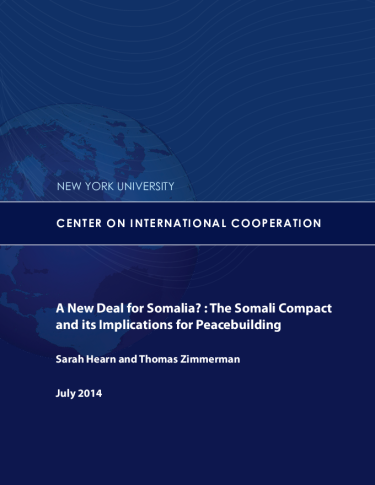This policy monitoring brief analyzes the process that led to the “Somali New Deal Compact,” the framework’s potential effectiveness as a peacebuilding tool, and potential ways to strengthen it.
We find that the New Deal Compact in Somalia appears to have created a paradigm shift in international policy rhetoric around Somali ownership and leadership. However, the process to develop the Compact has also revealed a series of difficult trade-offs (related to process, risk, and implementation) between political and technical imperatives for both Somali and external actors. Actors need to continually and consistently address these trade-offs to avoid the onset of strategic drift and premature loss of mutual confidence.

